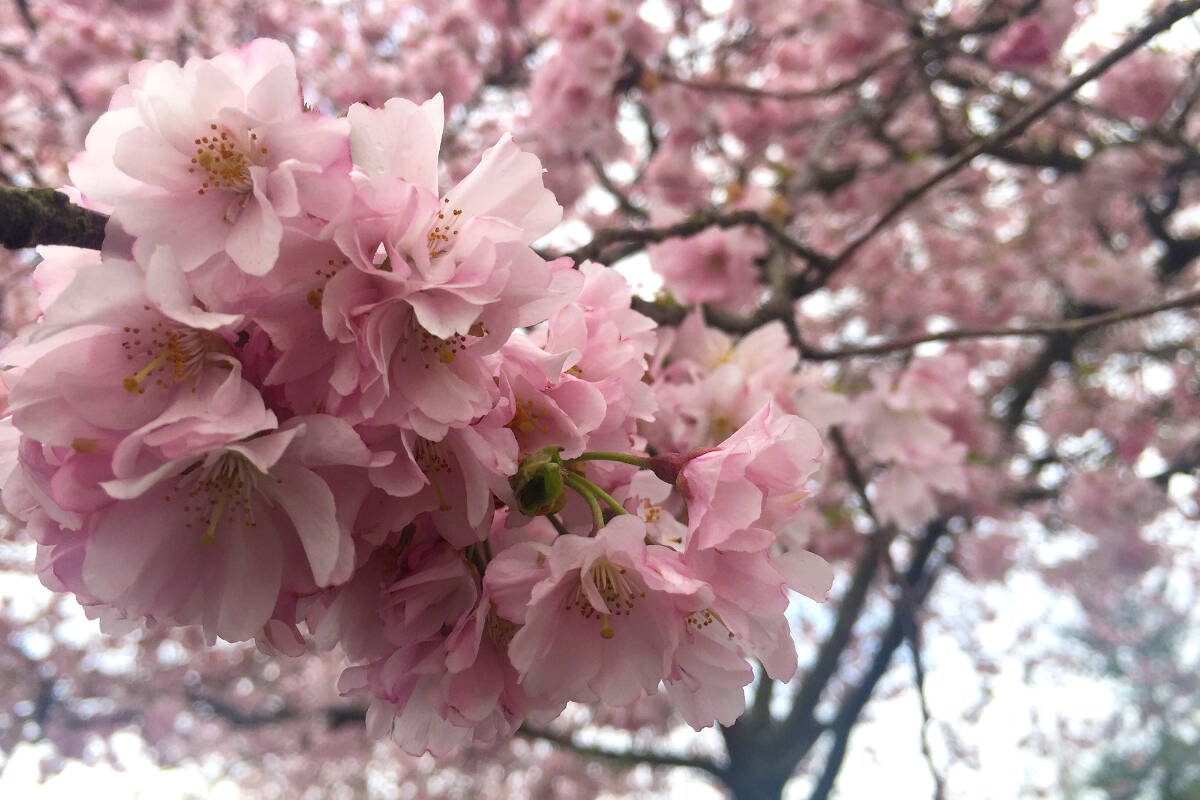The results are in on a global contest where British Columbians were challenged to predict when cherry blossoms would bloom around the world, with prizes up for grabs for those who guess accurately and help scientists better understand the impacts of climate change.
Vancouver cherry trees are expected to bloom on April 3, four days earlier than last year’s peak bloom. Contestants focused on the akebono trees in Maple Grove Park.
For the third year in a row, the contest organized by the University of British Columbia (UBC) and George Mason University asked students, researchers and other citizens to build statistical models that produce accurate predictions.
The bloom patterns in Vancouver, Washington D.C., New York City, Kyoto in Japan, and Liestal-Weideli in Switzerland were analyzed for peak bloom dates.
Cherry trees require a delicate balance of cold and warm days, and the ever-changing climates have made the patterns hard to predict in recent years.
“Last month was the warmest February on record globally,” said Elizabeth Wolkovich, UBC professor in the department of forest and conservation sciences. “In Vancouver it almost matched a 60-year record, so the April 3 prediction is not surprising.”
The overall consensus was that cherry trees will bloom in late March and into early April, with the average predicted dates for the other four cities as follows:
– March 26 for Washington, D.C.;
– March 27 for Liestal-Weideli, Switzerland;
– April 2 for Kyoto, Japan; and
– April 2 for New York City.
The winners of the contest will be announced in early May after cherry blossoms have bloomed and the correct dates are finalized.
To learn more about the International Cherry Blossom Prediction Competition visit competition.statistics.gmu.edu.
READ MORE: Global contest calls on British Columbians to predict cherry blossom bloomings

